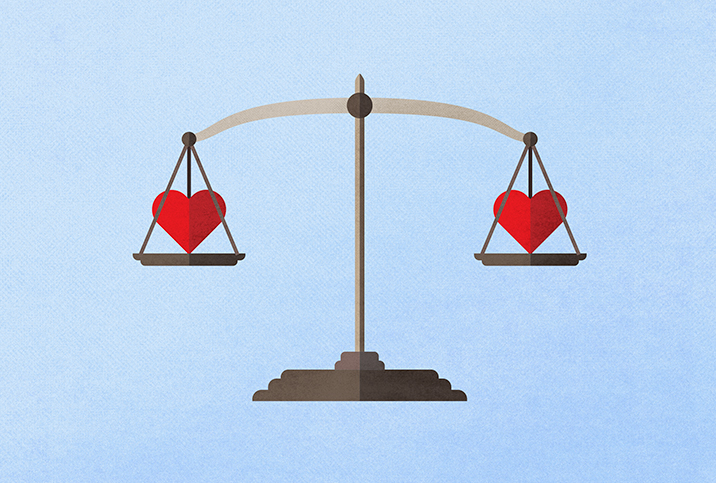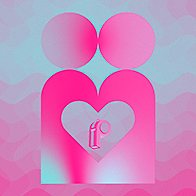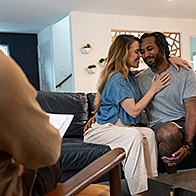How to Find the Best Certified Relationship Coach

Every relationship comes with challenges, from communication to commitment and more. But what if you're struggling to work things out with your partner and you can't reach a compromise or agree on a viable solution? Perhaps it's time to ask for some help from a certified relationship coach.
When relationship problems surface, couples wait an average of 2.68 years before seeking professional help, such as couples therapy or coaching, according to research published in a 2021 issue of Journal of Marital and Family Therapy.
This statistic is somewhat anomalous for relationship experts who consistently stress the importance of seeking help early before issues become entrenched and more difficult to untangle. How long you wait to seek help can make a difference between the need for relationship coaching or couples therapy.
Therapy vs. coaching
Relationship therapist Kathy McMahon, Psy.D., a clinical psychologist and president of Couples Therapy Inc., which has therapists based across the United States and internationally, explained the difference with an imaginary scenario.
Imagine a married couple: Connie and Colin. They get along well in all areas except regarding Colin's mother. Colin knows he should set better boundaries with how his mother behaves but has been taught to be respectful first and, thus, has a hard time with it. Connie knows he means well but feels Colin must learn how establishing limits can be done respectfully. Hence, they seek a relationship coach for help.
"In this case, the couple is essentially in agreement about the problem, sees that it is a problem and wants a specific set of solutions to address it," McMahon said. "The problem can be defined, worked on, and all within a specific time period."
However, this situation could escalate to the point where the couple may need more than relationship coaching alone.
"Connie and Colin's case will convert to a 'bad' coaching case if their issues go on for years," McMahon said. "By then, their mother-in-law issue will become entrenched and sides will be drawn more firmly, with maybe Colin's whole family being involved and Connie being left feeling hopeless and helpless to change these dynamics."
McMahon suggested another scenario where a couple named Tina and Timothy live for weeks at a time in angry silence because of fights. No matter how upset they get, neither can see or acknowledge the validity of the other's position, and it has impacted every area of their lives. They have stopped having fun together, sex is almost nonexistent and they live more like roommates than a married couple.
While they might think finding a relationship coach for their fighting would be a well-defined solution, actually, it is not. Issues of respect and emotional regulation, and maybe even early childhood histories, need addressing.
"In this case, a trained couples therapist would not only help them to develop the 'skill' of fighting but to address the more deep-seated issues that stop them from being true friends as they fight," McMahon said.
Relationship coaching app Relish defines couples therapy as focusing on improving relationships by addressing problems with communication and conflict resolution, while relationship coaching takes on a more goal-oriented approach to help couples identify the weaknesses in their relationship, set goals to improve and work to achieve their goals through an action plan.
"If couples want a goal-oriented approach which focuses on changing mindsets or perspectives as well as behaviors, couples coaching is a good option for them," said Munni Visco, J.D., a certified life coach and deputy head coach at the website Relish, which is headquartered in New York. "While there may be times when childhood experiences are affecting their current relationship dynamic, the focus will be on identifying that this is happening and changing the response in the present rather than going into detail about the experience."
Alana Rowe, a certified relationship master coach at California-based platform Relationship Hero, agreed with this definition of couples who are suited to seek coaching.
"If a client is having relationship problems related to mental illness or addiction, if they are in an abusive relationship or have unhealed childhood trauma that is affecting their relationship, therapy would be a better option," she said.
How to tell if you need relationship coaching
Visco said a few warning signs indicate a couple might want to seek a relationship coach:
- They aren't talking about more than the administrative details of running a household and/or the children.
- One or both people feel lonely even when they are together. They feel emotionally disconnected.
- There has been infidelity or a betrayal of trust.
- They aren't having sex often or at all and/or they're not enjoying it.
- There is a lot of arguing, but the conflict isn't being resolved.
Rowe added that many couples seek help only when conflicts have reached a point that is no longer tolerable, the disconnection within the relationship has expanded into multiple areas or one or both people threaten divorce or separation.
"This is a sign that you have ignored too many red flags along the way and that the relationship is in trouble," she said.
She recommended seeking help when you start to feel your needs are not being met and you have doubts if the relationship is right for you. This is when you might start thinking about various "what ifs," such as "What if things don't improve?" or "What if we break up for a while to get some space?"
Rowe stressed the importance of seeking help early when these situations begin.
"Invest in your relationship early on so that when challenges arise, you'll be prepared," she added. "When conflicts grow out of hand, they can influence every aspect of life."
McMahon said significant life transitions, such as the birth of a child, a move to a new city or an unpredictable incident like job loss or chronic illness that has left the couple spinning, can also warrant the need to seek help.
She recommended that all couples, even in the early stages of a relationship, sit down and ask each other important questions:
- Have we been raised with good role models on how to be a successful couple?
- Do we want to emulate the type of relationships our parents taught us?
- How well do we handle our differences? Can we acknowledge those differences or do we gloss over them? Does one of us push to get our way, and get it, most of the time?
- Can each of us hammer out and stick with a disagreement until we both are content that we have made the best "win-win" decision for both of us?
- Is our sex life playful and satisfying to each of us? Do we accept a raincheck gracefully or do we push? Do we feel like we have to beg to get this crucial relationship dynamic met? Does sex feel more like an obligation than a time to reconnect?
- Where are we going? What do we value above all else? What are we willing to give up to make our dreams come true?
- How do we set time aside to decompress? How do we reduce stress for the other person?
- How do we calm ourselves when we're upset? Do we expect our partners to do it for us? Do we lash out? Do we shut down?
"These are just some of the questions that all relationships should review," McMahon said. "And if they believe they have trouble with any of these issues, seek out a good coach who can help them navigate whether they need relationship coaching or a richer assessment first."
A licensed professional might end up like a lifelong helper, someone who knows you extremely well and can quickly and easily put both of you back on the right path when life causes you to detour from your goals, she added.
How to search for a relationship coach
These experts recommended that couples first look for coaches through referrals. Alternatively, you can do an online search of testimonials and reviews of potential coaches. Check their credentials, ensure they are properly certified and find one who specializes in the appropriate field, for example, emotional coaching or coaching specifically for LGBTQIA+ couples.
If the coach offers a discovery session or a free trial session, take them up on it and share your issues and assess if the style of the coaching session is comfortable for you. Do their approaches to your issues resonate with you?
McMahon suggested couples look into "science-based couples therapy" and start by reading books on what makes a relationship work.
"After they understand what goes into a successful relationship, I'd look for someone who offers both coaching and couples therapy," she said. "While a licensed psychotherapist can easily pivot to doing more in-depth work, someone not trained as a psychotherapist cannot."
First-timers, start your assessments now
McMahon and Visco recommended that couples ask each other these questions after their first session to assess if a prospective coach is the right choice:
- How closely has this professional focused on your particular tangible goals?
- Did you both feel heard and understood by the coach? Did the coach do a good job facilitating communication between the two of you?
- Did the coach focus on your childhoods and the way you were raised or did they stick to the matter at hand?
- Did they ask a lot of "Why?" questions or were they more "Who/what/when/where?" questions? The latter are coaching questions.
- Did you leave the session with a clear plan of action or specific steps to take that are aligned with your relationship goals?
- Did you have any insights about yourself and/or your relationship after the coaching session?
- Did you get an impression of how long you might be working with the coach?
- Did the coach outline what issues were not appropriate for coaching and what issues would require a different therapeutic focus?
"Effective coaching occurs when you have a strong, comfortable and trusting rapport with your coach," Rowe said. "It's all about having the appropriate chemistry and rapport. Trust your instinct."
A first coaching session typically starts with discussing the couple's goals, why they're seeking help, what they hope to achieve and what they previously tried. Some coaches may start by seeing each person individually before meeting with the couple together.
"This is really important as it gives safe space for the individuals to speak openly and honestly about the challenges from their own perspective," Rowe said.
"In the first session, I start by energizing the relationship and reconnect the clients to their personal 'whys,'" she added. "Why do they love their partner and why do they even want to invest their time, energy, emotion and heart? Hearing this from their partner uplifts the couple and gives them the emotional relief that supports them to be more understanding and compassionate when their partner expresses the challenges they face."
Rowe explained she uses both standard coaching techniques and embodiment practices or clinical tools, such as the emotional freedom technique (EFT), to provide a deeper, more effective and result-oriented approach.
In subsequent sessions, Visco said she focuses on identifying the factors that are getting in the way of the couple reaching their goals.
"We'll discuss tools to shift mindsets, perspectives and/or behaviors to implement between sessions," she said. "At times, one or both members of the couple may need individual coaching if they're having a hard time making changes or feeling stuck."
The cost of coaching sessions varies from less than $50 an hour to more than $300. Some coaches charge per session (which could last anywhere from 45 to 90 minutes), while others sell their services in packages including a certain number of sessions and/or a time frame in which the sessions will be completed. Some coaches work on a monthly retainer basis, which means you pay them a fee and they are available to you for that month.
The charges may differ based on the coach's certifications, years of experience and training.
How your relationship work can empower you
Courage is required to take the first step and acknowledge your relationship is facing issues that necessitate professional help. However, taking that step could empower you in many other aspects of your life.
"Many of us don't enter relationships with the skills and tools needed to create a healthy and thriving relationship," Visco explained. "We often don't realize that our own behavior and perspectives are affecting how we interact with our partner, and so we may blame our partners instead of recognizing that we each have the power to change and improve the dynamic of the relationship."
Coaching allows a couple to assess what is working and what is problematic in their relationship, McMahon added.
"Every couple has what American psychologist and author John Gottman calls 'perpetual issues,'" she explained. "These are issues that are differences that will last the entire relationship, such as 'owl/lark' differences in waking/sleeping times or personality differences. Rather than seeing these as a deal-breaker, perpetual issues are a normal part of every relationship, and learning how to manage them—and not abolish them—is a task in every relationship."
Most importantly, when you realize unhappiness is building up, it's better to recognize the reality of the situation and nip the problem in the bud.
"Don't wait until the unresolved issues cause resentment to build or until you are at the brink of a breakup or divorce to seek help," Visco added. "Even if your relationship is fairly healthy, seeing a coach can strengthen it so it can endure future challenges and hardships."




















